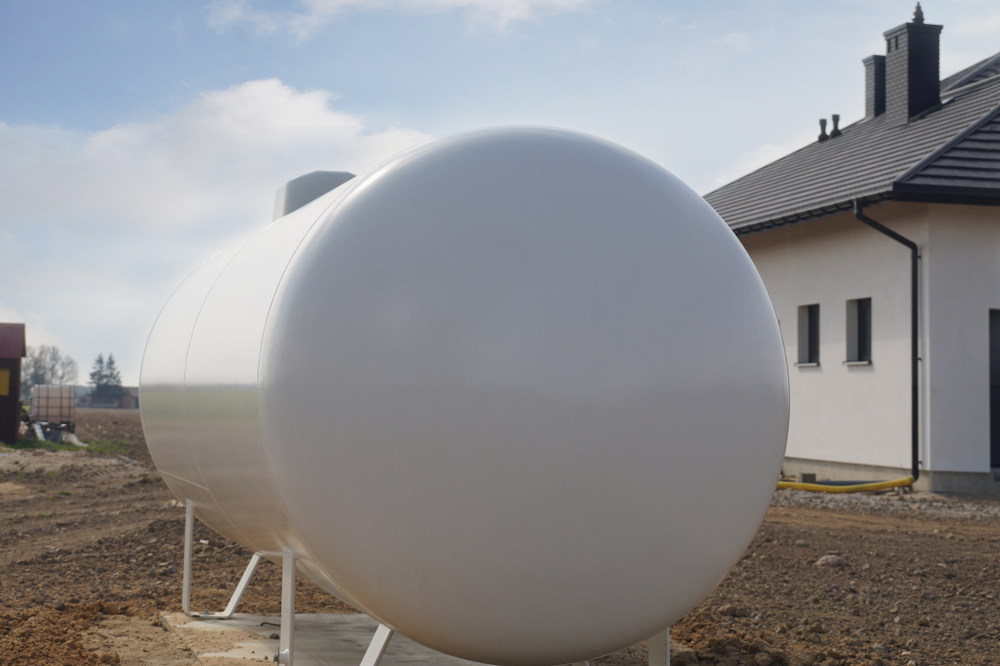
- admin
- September 21, 2020
Residential Gasoline Storage Tanks: A Complete Guide
Gasoline plays a crucial role in modern human civilization. According to 2018 data, 142.86 billion gallons of gasoline are consumed every year in the United States. Most of this fuel is used for catering to domestic purposes.
In this blog, we’ve provided a detailed guide on the best above-ground storage tanks to store gasoline in residential complexes, how much quantity is safe to store, and how long it can be stored.
What is the best tank to store gasoline?
It’s not advisable to store gasoline in just any container. Gasoline must be stored in firmly sealed aluminum, high-carbon steel, hard plastic, or fiberglass storage tanks labeled “gasoline.”
For long-term storage, diesel fuel tanks are the best bet! According to the Federal Government’s official guidelines, 10-50 gallons semi-portable tanks are a great choice for storing gasoline at residential complexes.
How much gas can you store at your house?
If you need to store gasoline at your home for an emergency generator, lawnmower, or any other purpose, you need to follow certain safety rules.
Fire codes typically restrict gas storage at residential complexes to no more than 25 gallons. Ensure to store gasoline in approved gas tanks.
Approved gas storage containers have a label or wording on the container stating that it meets specifications for portable containers for petroleum products. Don’t ever store gasoline in unapproved containers.
Here are a couple of guidelines that you must follow while storing gasoline at your home –
- Keep the tanks at least 50 feet away from pilot lights and ignition sources, such as heat, sparks, and flames.
- Install the tanks on the floor in a place where children won’t be able to reach. Ensure it’s in a garage or shed, and not in direct exposure to sunlight.
How long can gasoline be stored in a tank?
Like any other compound, gasoline too, has a shelf life. Once it loses its combustion ability, it tends to damage the components of the fuel system.
According to experts, residential gasoline naturally degrades and loses combustibility over time due to oxidation and evaporation of its volatile compounds.
Usually, it lasts 3 to 6 months when stored in a tightly sealed metal tank abiding by all the safety parameters and stored in a tank of capacity recommended by the fire department.
According to the United States Energy Information Administration, “E10” is the most widely sold gasoline in the U.S.
It’s made up of 90 percent petroleum-based gas and 10 percent ethanol (ethyl alcohol). Several studies have suggested that ethanol-blended gas has a shelf life of just three months due to its high oxidizing rate.
Besides ethanol being hydrophilic in nature, it absorbs water or humidity in a sealed tank resulting from condensation. This results in moisture contamination of fuel and the fuel’s separation into distinct gas and ethanol layers.
Generally, the higher the ethanol content, the lesser is the shelf life. So, E15 (15 percent ethanol content), E20 (20 percent ethanol), or E85 (85 percent ethanol) gas will expire sooner than the E10 variant.
Here was our in-depth guide on residential gasoline storage above-ground storage tanks. Let us know in the comment section if you’ve any further doubts, and we’d be more than happy to address your queries.
Also, let us know the type of gasoline tanks you’re using and the benefits you’re getting out of it!
- gasoline storage tanks
- Industrial Storage Tanks
- Storage tanks
Category
- Above Ground Fuel Tanks
- Above Ground Gas Storage Tank
- Above Ground Storage Tanks
- Above Ground Water Storage Tanks
- Agricultural Tanks
- Chemical storage Tanks
- Diesel Fuel Storage Tanks
- Diesel Storage Tanks
- Exernal FloatingRoof Tanks
- Farm Water Tank
- Fiberglass Oil Tanks
- Fiberglass Septic Tanks
- Fiberglass Tanks
- Fiberglass Underground Fuel Storage Tanks
- Field Erected Tanks
- Floating Roof Tank
- Food and Beverage Tanks
- Fuel tank
- Industrial Chemical Storage Tanks
- Industrial Gas Tanks
- Industrial Hot Water Storage Tanks
- industrial hot water tank
- Industrial Plastic Tanks
- Industrial Storage Tanks
- Industrial Tank heating pads
- industrial tanks
- Natural gas
- Natural gas vs Propane
- oil storage tank
- Oil Storage Tanks
- Peracitic Acid
- Petroleum Tanks
- Residential gasoline storage tanks
- Residential Water Storage Tanks
- Sodium Hydroxide Storage Requirements
- Sodium Hypochlorite Storage Tanks
- Steel Storage Tanks
- storage tank failure prevention
- Storage Tanks
- Sulfuric Acid Tanks
- Uncategorized
- UnderGround Storage Tanks
- Waste water tank
- Water Storage Tanks

 Tank Size Calculator
Tank Size Calculator






